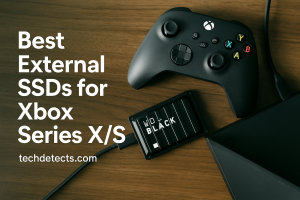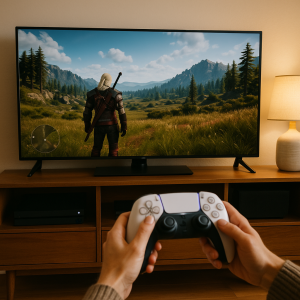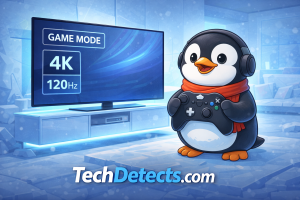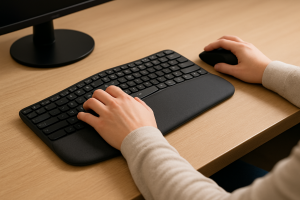Best AMD Ryzen Laptops in 2025 — Power, AI, and Portability
AMD’s latest Ryzen laptop chips (Ryzen AI 300/Strix Point and Ryzen 9000 HX) raised the bar for performance-per-watt, on-device AI, and graphics pairing. From creator rigs with immaculate 4K OLED panels to ultra-compact 14‑inch gaming beasts, this roundup focuses on current, widely available models that deliver meaningful advantages in the real world—thermals, battery life, IO, upgradability, and displays—not just benchmark spikes. If you’re upgrading from an older Ryzen 4000/5000/6000/7000 notebook, expect substantial gains in CPU bursts, sustained performance, and Nvidia RTX 50‑series synergy on top configurations.

List of the Best AMD Ryzen Laptops (2025)
ASUS ROG Zephyrus G14 (2025) — Best Overall AMD Laptop (Gaming + Creation)
Specs: Up to AMD Ryzen AI 9 HX 370, up to GeForce RTX 5080 (Laptop), 14‑inch 2.8K OLED 120Hz, Wi‑Fi 7, ~1.5 kg.
Why it’s great: The 2025 G14 couples AMD’s new HX 370 with RTX 50‑series graphics in a premium 14‑inch chassis. The OLED panel, strong speakers, and cooling updates make it as capable for Premiere/DaVinci as it is for high‑refresh gaming.
Framework Laptop 16 (2025) — Best Modular/Upgradeable AMD Laptop
Specs: Up to AMD Ryzen AI 300 (HX 370), modular GPU (new RTX 5070 Laptop GPU module), 16‑inch QHD‑class, 240W USB‑C PD, Wi‑Fi 7.
Why it’s great: The only mainstream notebook where you can swap the GPU and mainboard. The 2025 update brings an RTX 5070 module, Ryzen AI 300 boards, a revamped thermal design, and first‑party 240W USB‑C charging. It’s a future‑proof dream for tinkerers and pro users.
Lenovo Legion Pro 5 Gen 10 (16″ AMD) — Best Value 16‑inch Gaming
Specs: Up to Ryzen 9 8945HX (Fire Range), up to GeForce RTX 5070, 16‑inch 165–240Hz panels, advanced Legion cooling.
Why it’s great: Plenty of wattage headroom and the latest Ryzen 9000 HX silicon make this a performance workhorse that undercuts boutique rivals on price. Great keyboard and serviceability for long‑term ownership.
ASUS ProArt P16 (2025) — Best 16‑inch Creator Laptop (Ryzen + RTX Studio)
Specs: Ryzen AI 9 HX 370, GeForce RTX 5070, 16‑inch 4K OLED (100% DCI‑P3), ASUS DialPad, Studio drivers.
Why it’s great: A refined creator platform with accurate 4K OLED, powerful CPU/GPU, and the handy DialPad for timeline/brush control. Thermal design sustains exports and renders without rapid throttling.
ASUS ProArt PX13 (13″ 2‑in‑1) — Best Convertible Creator (Touch + Pen)
Specs: Up to Ryzen AI 9 HX 370, up to GeForce RTX 4050, 13‑inch OLED convertible with stylus, Studio drivers.
Why it’s great: A rare creator‑class 2‑in‑1 with real GPU muscle for editing, color work, and light 3D—plus a gorgeous OLED touch panel. Ideal for travel and sketching.
Razer Blade 14 — Best Premium 14‑inch Build
Specs: Ryzen 9 8945HS, up to GeForce RTX 4070, 14‑inch 240Hz/3K options, CNC aluminum chassis, ~1.8 kg.
Why it’s great: Meticulous build quality, excellent inputs, and strong performance in a compact body. While pricier and capped at RTX 5070/4070‑class GPUs, it remains the sleekest AMD 14‑inch machine around.
Lenovo Yoga Pro 7 (14″ AMD) — Best Thin‑and‑Light Ryzen Creator
Specs: Up to Ryzen AI 9/7 3xx (e.g., 365), 14‑inch 2.8K IPS/OLED options, up to 32–64GB LPDDR5X, 1.5 kg‑class.
Why it’s great: A balanced ultraportable with more cooling headroom than typical 14‑inchers. Great for photography, design docs, and occasional timeline edits—without lugging a 16‑inch workstation.
Acer Nitro V 16 AI (AMD) — Best Budget Gaming (Ryzen + RTX)
Specs: Up to Ryzen 7 8845HS/AI 7 350, up to GeForce RTX 4060/5070, 16‑inch 165Hz+ panels, MUX options.
Why it’s great: Delivers high‑refresh 1080p/1440p gaming at aggressive prices. Good thermals for the class and plenty of performance per dollar for students and first‑time buyers.
ASUS Vivobook S14 (AMD) — Best Everyday AI Laptop (Great Value)
Specs: Latest AMD‑powered Copilot+ configuration, 14‑inch OLED class screens, thin‑and‑light design, modern IO.
Why it’s great: A stylish daily driver with AMD’s new AI silicon for on‑device tasks, long battery life, and vibrant OLED visuals at approachable prices.
Lenovo ThinkPad T14s Gen 6 (AMD) — Best Business Ryzen
Specs: Ryzen AI 7 Pro 360, up to 64GB LPDDR5X, lightweight chassis (~1.25–1.3 kg), ThinkPad security & IO.
Why it’s great: Enterprise‑grade build, quiet thermals, and modern AMD AI silicon make it a dependable business machine that still feels snappy off‑dock.
Comparison Table
| Laptop | CPU (max) | GPU (max) | Display highlight | Weight | Best for |
|---|---|---|---|---|---|
| ASUS ROG Zephyrus G14 (2025) | Ryzen AI 9 HX 370 | RTX 5080 | 14″ 2.8K OLED 120Hz | ~1.5 kg | Gaming + creation |
| Framework Laptop 16 (2025) | Ryzen AI 300 (HX 370) | Modular RTX 5070 | 16″ QHD‑class | ~2.4–2.6 kg | Upgradability |
| Lenovo Legion Pro 5 Gen 10 (AMD) | Ryzen 9 9955HX | RTX 5070 | 16″ 165–240Hz | ~2.5–2.6 kg | Value 16″ gaming |
| ASUS ProArt P16 (2025) | Ryzen AI 9 HX 370 | RTX 5070 | 16″ 4K OLED | ~1.8–2.0 kg | Pro creators |
| ASUS ProArt PX13 | Ryzen AI 9 HX 370 | RTX 4050 | 13″ OLED 2‑in‑1 | ~1.4–1.6 kg | Touch + pen work |
| Razer Blade 14 (2024/25) | Ryzen 9 8945HS | RTX 4070 | 14″ 240Hz/3K | ~1.8 kg | Premium 14‑inch |
| Lenovo Yoga Pro 7 (14) | Ryzen AI 3xx | iGPU | 14″ 2.8K | ~1.5 kg | Thin‑and‑light creation |
| Acer Nitro V 16 AI (AMD) | Ryzen 7 8845HS / AI 7 350 | RTX 4060/5070 | 16″ 165Hz+ | ~2.3–2.6 kg | Budget gaming |
| ASUS Vivobook S14 (AMD) | Ryzen AI | iGPU | 14″ OLED | ~1.3–1.5 kg | Everyday AI laptop |
| ThinkPad T14s Gen 6 (AMD) | Ryzen AI 7 Pro 360 | iGPU | 14″ 2.2–2.8K | ~1.25–1.3 kg | Business/IT |
Final Thoughts
- Best overall: ROG Zephyrus G14 (2025) for top‑tier performance in a portable form.
- Best modular: Framework Laptop 16 (2025) if you value repairability and long life.
- Best creator: ProArt P16 (2025) for accurate 4K OLED and sustained exports.
- Best value gaming: Legion Pro 5 Gen 10 (AMD); Nitro V 16 AI if you want budget‑friendly.
- Best thin‑and‑light: Yoga Pro 7 (14) AMD; Vivobook S14 for everyday AI tasks.
- Best premium 14‑inch: Razer Blade 14 for build quality and tuned thermals.
FAQs
Ryzen AI 300 vs Ryzen 9000 HX—what’s the difference?
Ryzen AI 300 (Strix Point) focuses on high‑efficiency performance and on‑device AI (NPU) in thin‑and‑lights (and some gaming rigs). Ryzen 9000 HX targets maximum CPU throughput in bigger gaming laptops.
Is RTX 50‑series worth it on AMD laptops?
Yes for gaming/3D/AI tools: better frame generation and efficiency, plus higher top‑end tiers (5070–5080) on premium designs.
Should creators pick OLED?
For color‑critical photo/video, a good OLED (with calibration) is stellar. If you fear burn‑in or keep static UI on‑screen for days, consider a high‑end IPS mini‑LED alternative.
How much RAM/storage is ideal?
Creators: 32GB/1–2TB minimum. Gamers: 16–32GB/1TB. Business/travel: 16GB/512GB is plenty, but 32GB offers headroom.
Any airline battery limits?
All laptops here are well under the 100Wh carry‑on battery limit—only very large batteries require airline approval.






